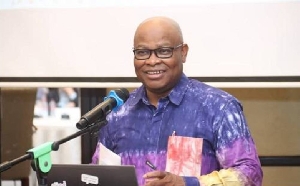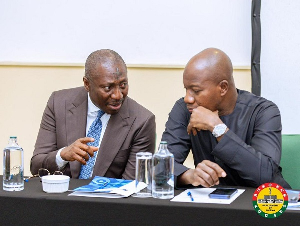A professor of governance at the University of Witwatersrand, South Africa, Adebayo Olukoshi, has called on African leaders to develop innovative solutions to generate revenue to end the cycle of debt distress on the continent.
According to him, such innovations could only be possible if the leaders build the political will to lift their countries out of the never-ending debt situation.
Speaking at the opening of a conference in Accra yesterday on Africa’s debt crisis and international financial architecture reform, he said, African leaders must desist from the one-way option of accumulating debt even when opportunities exist to generate revenue locally.
Organised by the International Development Economics Associates (IDEAs) in collaboration with the African Forum and Network on Debt and Development (AFRODAD), participants included political scientists, academics, economists, policymakers, and civil society organizations (CSOs).
Citing the 2023 report by the International Monetary Fund (IMF), Prof Olukoshi said, more than half of Sub-Saharan Africa’s low-income countries were at high risk or already in debt distress.
Currently, he noted that, Ghana, Malawi, Nigeria, Ethiopia, Zambia, and other African countries were implementing various loan-support programmes with the IMF and undergoing a debt restructuring process.
This, he said, had resulted in debt ratios increasing from 30 per cent in 2013 to nearly 60 per cent in 2022
He called for strong political awakening to tackle the debt problem and put the continent on the path of debt sustainability and economic stability.
“It’s important that we break this cycle, and the starting point is political awakening; an awakening that provides a framework in which leadership vision can then be developed,” he said.
As the continent with abundant human and natural resources, Prof Olukoshi stated that, it was time take the necessary measures to break the structures of dependence on loans.
He advised African leaders to work towards increasing productivity and regulating the export of human resources and raw materials, which was currently projected at US$60 billion, to the rest of the world.
Mr Charles Abugre, Executive Director of IDEAs, noted that, despite the conclusion of the Multilateral Debt Relief initiative 20 years ago, Ghana and many other African countries were now facing debt crises.
The debt challenges, he said, could be addressed through good political and bureaucratic leadership on the continent.
He stated that, the conference would provide a platform to learn from the past, determine how best to restructure debt to prevent insolvency and develop alternatives to external support programmes on debt sustainability loan.
Business News of Saturday, 6 April 2024
Source: ghanaiantimes.com.gh













